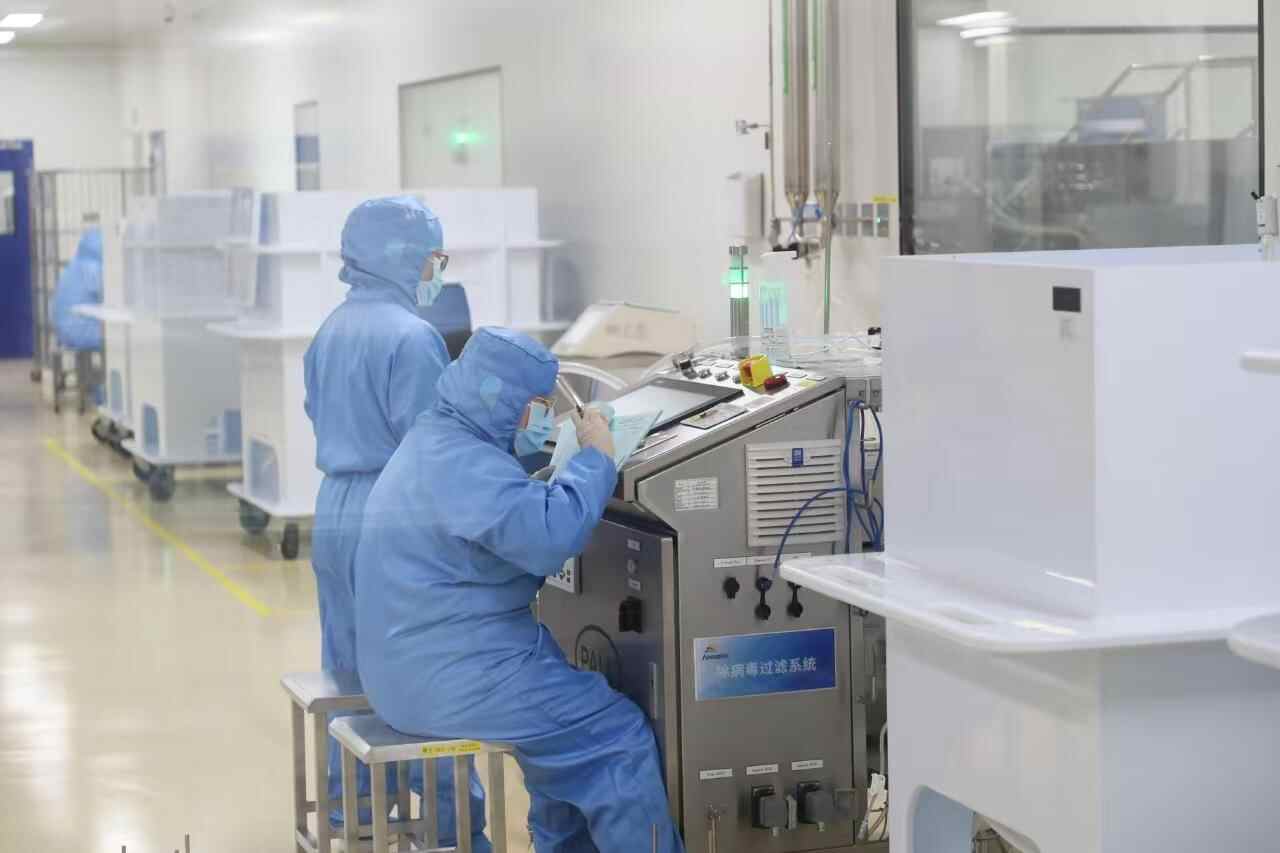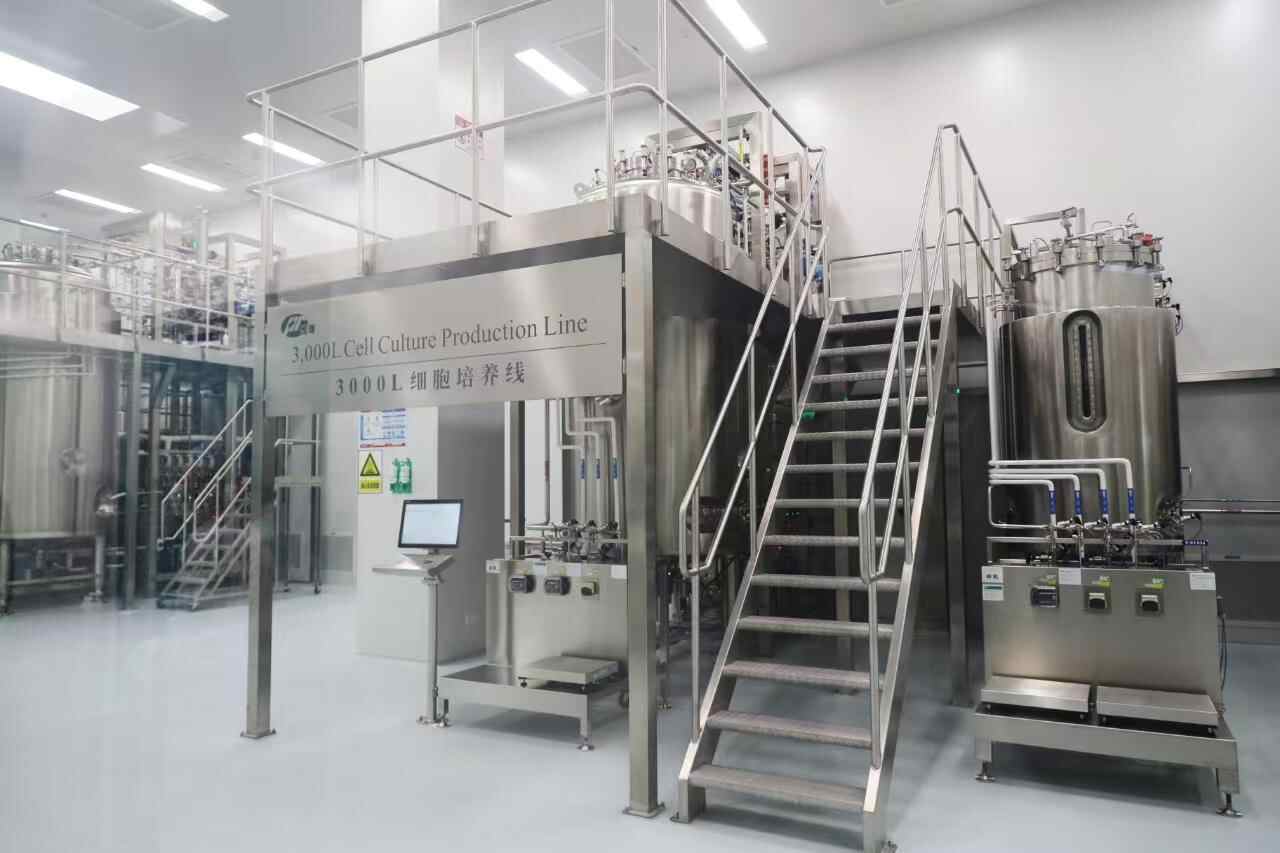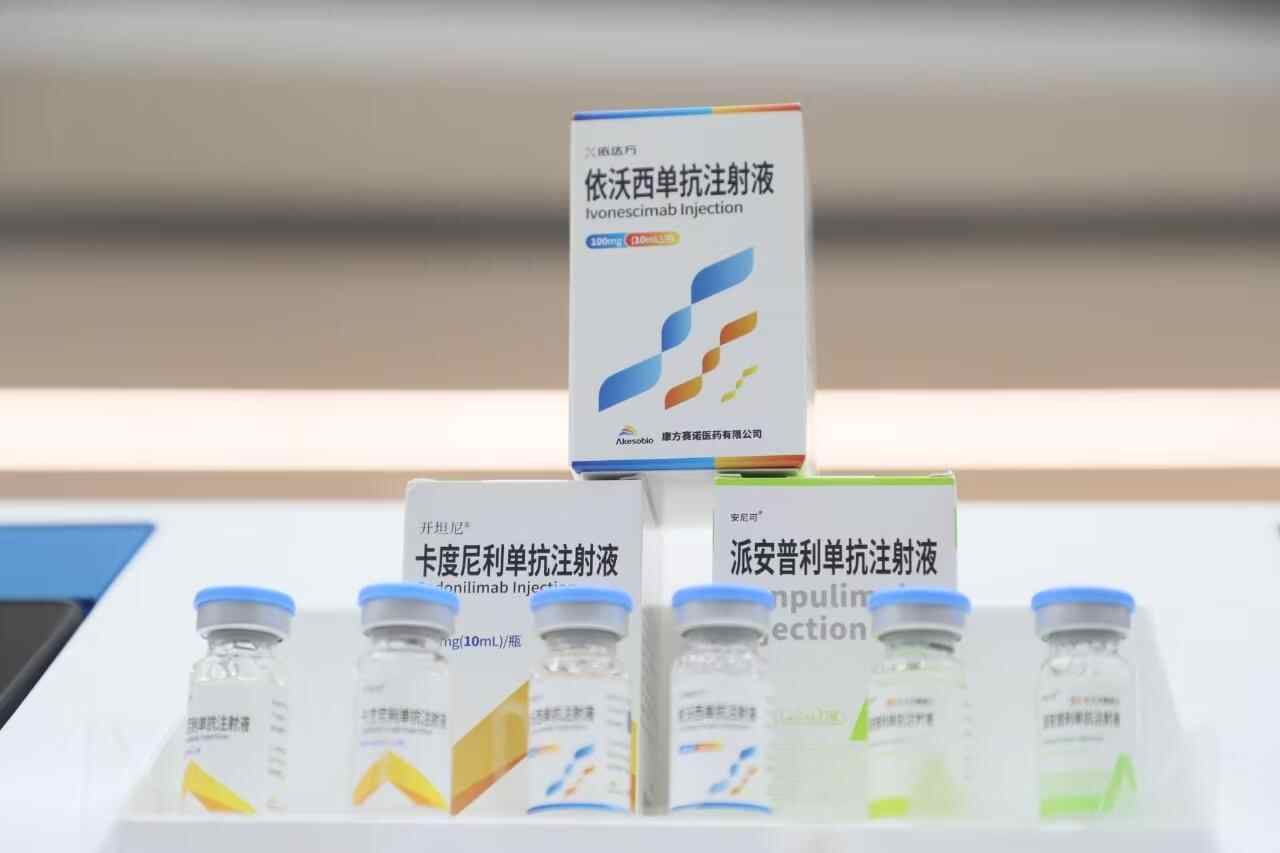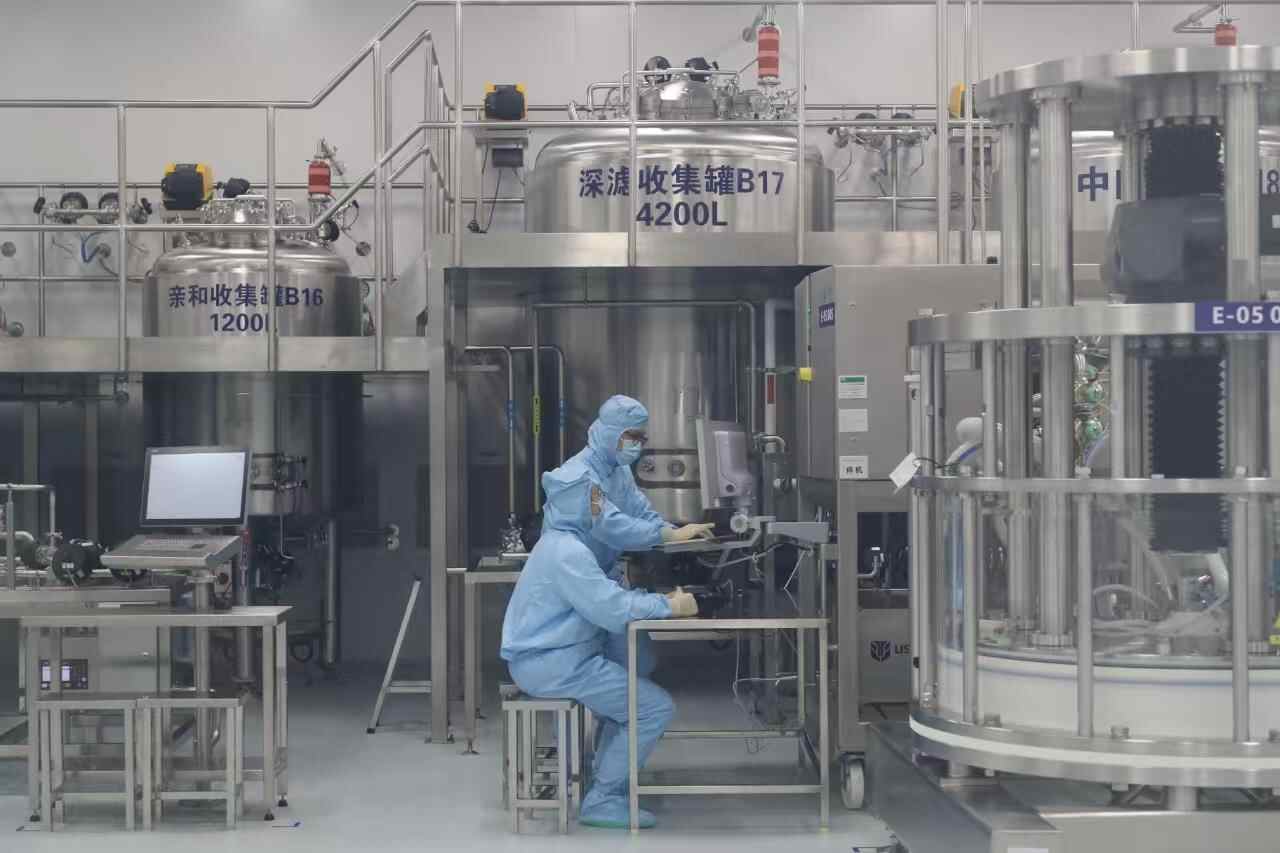
In the global arena of biomedicine, Guangzhou's innovative drug companies are rewriting the rules with "hard‑core technology."
Since its founding in 2012, Akeso Biopharma has been nearly "crazy" in terms of bispecifics. It has 50 self-developed investment drug candidates, 15 bispecific/multispecific/bispecific ADC pipelines, over 25 ongoing registration or Phase III clinical studies, and an total investment of more than 6 billion yuan in R&D. In 2022, Cadonilimab was granted marketing approval as the world's first bispecific immuno‑oncology therapy drug for relapsed or metastatic cervical cancer. Clinical data showed that patients' median overall survival more than doubled compared with the existing standard of care.

At the 2024 World Conference on Lung Cancer, Akeso unveiled the PhaseIII results for its self‑developed PD‑1/VEGF bispecific drug Ivonescimab in non‑small‑cell lung cancer. It showed that Ivonescimab achieved a median progression‑free survival of 11.14months, which was 5.32 months longer than the control group, setting the longest record among similar therapies globally.
"International pharma used to dominate the lung‑cancer new drug market, but now we are gradually gaining a voice," said Yang Junjian, Senior Director of public relationsat Akeso. In 2024, the company's product sales surpassed two billion yuan, and its two core bispecific antibodies were included in China's national reimbursement drug list at year‑end, significantly improving patient access and greatly reducing out‑of‑pocket costs. Therefore, more Chinese patients can benefit from world‑leading medicines.
For more than 20 indications, from lung cancer to gastric cancer, from monotherapies to combination therapies, Akeso's bispecific platform is building formidable barriers to entry. Today, its overseas clinical trials have coveredcountries in Asia, the Americas, Europe, Australia, and other regions.
In the molecular laboratory of Hengrui Pharmaceuticals, "PCSK9" represents a five-year-long technological breakthrough.
As the world's first ultra‑long‑acting PCSK9 monoclonal antibody, "Aixin'an (Recaticimab for Injection)" faced enormous R&D challenges. Whereas existing drugs require injections every 2-6weeks, this drug's optimized molecular structure extends dosing intervals to eight weeks.
In January2025, the first batch of "Aixin'an" drug was shipped from the Suzhou base to hospitals nationwide. Patients with hypercholesterolemia will now receive 20 fewer injections per year. This "Chinaspeed" extends well beyond a single product. Hengrui's pipeline includes 90 self‑discovered innovations in clinical development, 19 of which are on the market and four under review in Europe and the US.
At its base in the China‑Singapore Guangzhou Knowledge City, scientists are testing the next‑generation "once every six months" ultra‑long‑acting lipid‑lowering drugs. "International giants' patent walls won't stop us. Chinese patients' needs are our most urgent call to action," says Chen Lei, General Manager of Hengrui Pharmaceuticals, Guangdong branch. To this end, Hengrui's Knowledge City base has newly built a domestic pre-filled syringe production line capable of filling 7,000 syringes per hour, with annual output exceeding ten million units.
At the same time, more biomedical companies are accelerating their R&D efforts. BeiGene leads in the development of targeted and immunological anti-cancer drugs in China, with five innovative assets in clinical trials at its Guangzhou headquarters. Bio-Thera was the first listed biotech on the STAR Market purely based on its medical technology, despite zero revenue and profit, and its first‑in‑class Bevifibatide Citrate Injection was recently approved for marketing. Under the fluorescence microscope in labs at dawn, every drop of liquid medicine may hold the next "world first" product.

Source: Lingnan On the Cloud
荧光显微镜下,藏着下一项“全球首个”
看广州生物医药如何自主创新与全球竞速
在生物医药的全球竞技场中,广州创新药企正以“硬核科技”改写规则。
从2012年成立至今,康方生物在双抗领域的产出近乎“疯狂”:50个自主候选药物、15条双抗/多抗/双抗ADC管线、超过25个注册性/III期临床研究已开展,研发总投入已超过60亿元。2022年,“开坦尼®”获批上市,成为全球首个肿瘤双免疫治疗药物,用于复发/转移性宫颈癌治疗。临床数据显示,患者中位生存期比已获批疗法延长超过一倍。
2024年,康方生物自研PD-1/VEGF双抗新药“依沃西”在美国世界肺癌大会公布的III期数据显示,依沃西治疗非小细胞肺癌的中位无进展生存期达11.14个月,较对照组延长5.32个月,创下全球同类疗法最长纪录。

“国际药企曾经是肺癌新药市场的绝对霸主,但现在我们也逐渐拥有了话语权。”康方生物公共关系高级总监杨俊坚透露,公司产品2024年销售收入突破20亿元,两大核心双抗去年年底成功纳入国家医保目录,新药可及性显著提升,患者用药负担大幅降低,让更多中国患者受益于全球领先的药物。
从肺癌到胃癌的20多个适应证,从单药到联合疗法,康方生物双抗技术正构建起竞争壁垒。如今,康方生物海外临床研究已覆盖亚、美、欧、澳等区域众多国家。
在恒瑞医药的分子实验室,“PCSK9”揭示了一场持续五年的技术攻坚。
作为全球首个超长效PCSK9单抗,“艾心安”的研发面临巨大挑战。行业现有药物需每2-6周注射一次,而该药物通过分子结构优化,将注射间隔延长至8周。
2025年1月,“艾心安”首批药物从苏州基地发往全国。目前,“艾心安”已向全国各级医院供货,为高胆固醇血症患者年均减少20次注射。这种“中国速度”不止于单一产品。恒瑞医药的管线中,90个自主创新药正在临床推进,其中19款已上市,4款进入欧美申报阶段。

在其位于中新广州知识城的基地,科学家们正测试下一代“半年一针”的超长效降脂药。“国际巨头的专利墙挡不住我们,因为中国患者的需求就是最急的冲锋号。”广东恒瑞总负责人陈磊表示。为此,恒瑞知识城基地新建一条全国产化预充针生产线,每小时可灌装7000支预充针剂,年产能超1000万支。
与此同时,更多生物医药企业也正加快研发步伐:百济神州靶向和免疫抗癌药物研发国内领先,广州总部已有5个创新药进入临床试验;百奥泰是科创板第一家无收入无盈利、纯以医药技术成功上市的创新药企业,1类创新药枸橼酸倍维巴肽注射液近期获批上市……凌晨的实验室里,荧光显微镜下的每一滴药液,或许正藏着下一项“全球首个”。
文丨记者 卢佳圳
翻译丨柯妃娟
审校丨林佳岱
-
Guangdong's foreign trade volume reaches ¥2.14t in Q1, up 4.2% yoy
2025-04-18 22:23:41 -
4.33m vs 128m: decoding Guangdong's talent strategy
2025-04-18 22:24:19 -
Robot Showcase at Canton Fair Highlights the Power of“Intelligent Manufacturing in China”
2025-04-17 21:34:08 -
Youth health dialogue in Guangzhou deepens China-US ties
2025-04-17 21:04:57






